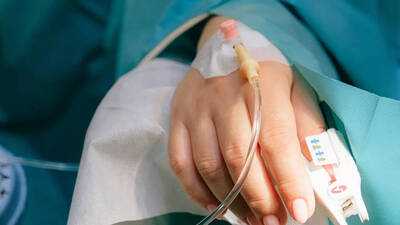Five individuals in south-east Queensland, Australia, were hospitalized with symptoms of brodifacoum poisoning, a potent anticoagulant commonly used in rat poison. Health authorities are investigating the source of the contamination, which is believed to have originated from a fast food outlet in Logan, in Brisbane’s south.

Chief Health Officer Dr Catherine McDougall has issued a caution regarding an internal safety alert about potential poisonings. Staying alert is extremely important during this time. Here’s everything you need to know about the dangers of brodifacoum poisoning, symptoms, and how to respond in case of emergency.
What is Brodifacoum, and why is it dangerous

Brodifacoum, a 'superwarfarin', is a type of anticoagulant commonly found in rat poison. It interferes with the body by reducing Vitamin K, which is essential for blood clotting. Brodifacoum works by inhibiting vitamin K-dependent clotting factors (II, VII, IX, and X). It leads to coagulopathy, which means the blood cannot clot properly. When the body's ability to clot blood is lost, it can lead to severe or even life-threatening internal bleeding. Other common ingredients in the rat poison also have blood-thinning and neurotoxic properties.
Though other food poisonings cause symptoms such as vomiting or diarrhea, this does not. The symptoms may not appear until hours or even days after the exposure, which can delay diagnosis.
Common signs and symptoms In humans, exposure to Brodifacoum can lead to the following symptoms, according to verywellhealth:
In humans, exposure to Brodifacoum can lead to the following symptoms, according to verywellhealth:
What are the complications? Brodifacoum has a very long half-life and slow metabolism. Exposure to it, especially ingestion, can lead to serious long-term complications such as brain damage, liver dysfunction, kidney failure, other organ damage, coma, and even death.
How to respondWhile handling rat poison with care is vital, in case of accidental exposure, it is important to seek medical care immediately. According to Mount Sinai and CDC, some of the immediate care steps are.
VideoAnyone who suspects or has symptoms of rat poisoning should contact a health practitioner immediately or call 13 HEALTH (13 43 25 84).
Chief Health Officer Dr Catherine McDougall has issued a caution regarding an internal safety alert about potential poisonings. Staying alert is extremely important during this time. Here’s everything you need to know about the dangers of brodifacoum poisoning, symptoms, and how to respond in case of emergency.
What is Brodifacoum, and why is it dangerous
Brodifacoum, a 'superwarfarin', is a type of anticoagulant commonly found in rat poison. It interferes with the body by reducing Vitamin K, which is essential for blood clotting. Brodifacoum works by inhibiting vitamin K-dependent clotting factors (II, VII, IX, and X). It leads to coagulopathy, which means the blood cannot clot properly. When the body's ability to clot blood is lost, it can lead to severe or even life-threatening internal bleeding. Other common ingredients in the rat poison also have blood-thinning and neurotoxic properties.
Though other food poisonings cause symptoms such as vomiting or diarrhea, this does not. The symptoms may not appear until hours or even days after the exposure, which can delay diagnosis.
Common signs and symptoms
- Bleeding gums, nose, or skin
- Chills
- Confusion
- Extreme thirst
- Increased urination
- Headche
- Convulsions
- Shortness of breath
- Pain
- Lightheadedness (often due to internal bleeding)
- Exhaustion
- Seizures
- Upset stomach
- Nausea
- Vomiting
What are the complications? Brodifacoum has a very long half-life and slow metabolism. Exposure to it, especially ingestion, can lead to serious long-term complications such as brain damage, liver dysfunction, kidney failure, other organ damage, coma, and even death.
How to respondWhile handling rat poison with care is vital, in case of accidental exposure, it is important to seek medical care immediately. According to Mount Sinai and CDC, some of the immediate care steps are.
- Call emergency medical help immediately, as brodifacoum poisoning is serious and requires urgent professional care.
- In case of poisoning by swallowing or inhalation, check and monitor the person's airway, breathing, and pulse. If necessary, begin rescue breathing and CPR.
- Do not induce vomiting unless directed by poison control or medical personnel.
- Remove any contaminated clothing or personal belongings safely to prevent further exposure.
- If the poison has come in contact with skin, clean the affected skin with soap and water while wearing protective gear.
- For eye exposure, rinse eyes with clean water for at least 15 minutes.
- Keep the person calm and lying on their side, in case of vomiting to prevent choking.
- Do not give anything by mouth unless instructed by medical professionals.
VideoAnyone who suspects or has symptoms of rat poisoning should contact a health practitioner immediately or call 13 HEALTH (13 43 25 84).
You may also like

"Heartfelt Diwali greetings to all my fellow citizens": Priyanka Gandhi Vadra extends Diwali greetings

'It Was Unnecessary', Says Anjum Chopra On Deepti's Shot Selection As She Analyses India's Loss To England

Women's World Cup Qualification Scenario: India will reach the semi-finals despite losing to England, here's the equation

Ambulance set on fire amid SDPI-CPI(M) clash in Kerala

Stop putting tomatoes in the fridge - one storage method keeps them fresher






